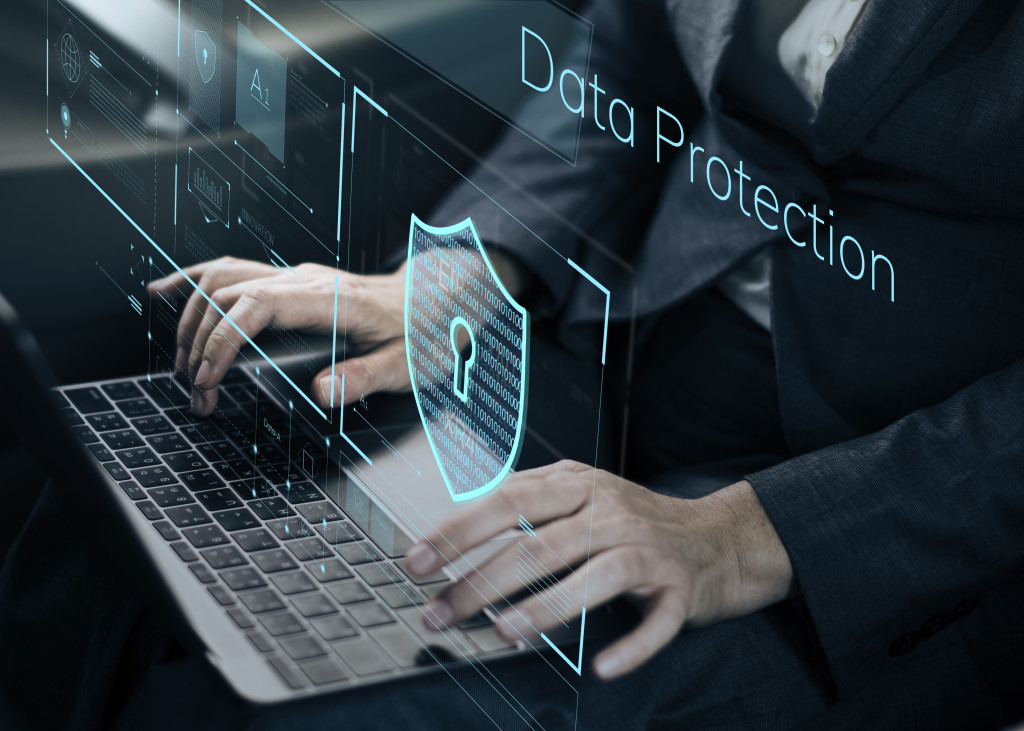During the pandemic, many offices and businesses were left unattended as work was brought into employees’ homes. Owners of businesses invested in security to keep their establishments safe as a precaution. Now that businesses are starting to shift towards working from home and meeting in the office, there are additional security measures that need to be taken.
What Is Hybrid Work?
In the light of the new work arrangements, entrepreneurs had to adapt by allowing their employees to work from home. As vaccines are rolled out, some business owners are interested in merging the advantages of working from home and meeting at a physical space intended solely for work. This is the basis for a new work arrangement called “hybrid work.”
Workers reported that their productivity increased as they worked from home. It could be due to the free time they gained as they spent less time commuting. They would also be less distracted by their coworkers. For them, it resulted in 3 extra weeks of work per year.
At the same time, there is a need for people to meet physically in the office. The isolated work environment for remote workers does lead to increase productivity, but it also means that they will burn out a lot quicker. Working in an office allows them to separate the spaces that the employees live in and work in, creating boundaries and a better work-life balance.
The Right Technologies for Hybrid Work
Businesses need to protect internal information. Whether that information is stored digitally or in a file cabinet, online and offline security investments are a must. 75% of information technology decision-makers believe that the workplace will no longer be confined to the office. Even after the pandemic, they will still maintain work-from-home arrangements, scheduling office meetings only when necessary. Therefore, here are some ways to ensure that the employees and the business remain secure online and offline:

1. Using a Virtual Private Network (VPN)
VPNs secure the remote activity of your employees through an encrypted tunnel, making it difficult for outsiders to monitor their activity. They are especially helpful if you have employees that have a habit of using public Wi-Fi to access their work.
2. Holding Workshops on the new Technology
Conducting frequent workshops with your employees regarding any security concerns and challenges that the company has will help strengthen the overall performance of your system. Unfortunately, not everyone is tech-savvy enough to fully understand how certain software, websites, or apps work. Workshops can teach your employees to avoid threats to your company, such as phishing.
3. Offline and Online Alarm Systems
Integrating offline and online alarm systems is the best way to secure your business from all angles. You can find the best commercial alarm systems to help you monitor security breaches, and some will even alert you on your phone if something’s wrong. Even a vigilant security guard can use all the help they need to make sure they work efficiently.
4. Updated Bring Your Own Device (BYOD) Policies
BYOD policies are supposed to be common nowadays, and it’s one way for employees to get hacked and allow an entry to breach your system. Find a way to modify the BYOD policies in such a way that maintains its advantages. For example, you can schedule frequent malware checks on the devices and try to reduce the chances of a data breach from happening if you haven’t already implemented this idea. You can even do a device audit to make sure that the systems of your employees are updated and secure.
5. Penetration Testing
Sometimes, businesses need to hire a white hat to test if their fortress is strong enough to keep everyone in the company safe. Hiring someone to hack into your system can help you better identify the kinks in the chain so that you can strengthen those parts.
Even though security issues have been prominent during the pandemic, it is no doubt that the industry is doing its best to respond to the issues. Businesses always have the full support of the security industry, as there is a large market for cybersecurity and physical security. Through training on how the technologies work, how certain alarms can be best used to keep establishments safe, and maintaining a common sense of precaution online, the future of hybrid working is a promising way for employers to adapt to a new normal.

